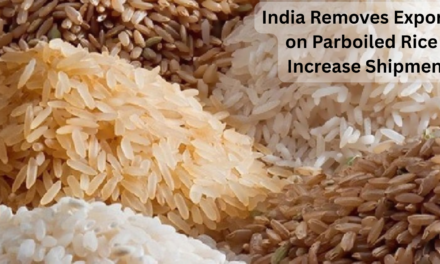India has officially resumed exports of non-Basmati white rice, driven by surging domestic stocks and an anticipated bumper harvest in the upcoming cropping season. The decision comes after a temporary export ban was imposed earlier to ensure food security and stabilize domestic prices amidst global supply concerns. With a record-high rice production forecast and robust buffer stocks maintained by the Food Corporation of India (FCI), the government has eased restrictions to balance domestic availability and capitalize on lucrative global markets.
India, as the world’s largest rice exporter, holds a dominant position in supplying non-Basmati rice, which is a staple for many developing countries in Asia, Africa, and the Middle East. The resumption of exports will provide much-needed relief to nations grappling with food shortages and inflation caused by supply disruptions, adverse weather patterns, and geopolitical tensions. Key importing countries such as Bangladesh, Indonesia, Nigeria, and Senegal are expected to benefit from India’s decision, as Indian non-Basmati white rice is highly valued for its affordability and consistent quality.
The export resumption is backed by surging domestic stocks, which have reached record levels due to favorable monsoons, the adoption of high-yielding rice varieties, and government support programs like the Minimum Support Price (MSP) mechanism. These factors, coupled with improvements in irrigation infrastructure and precision farming practices, have led to increased acreage and higher productivity across major rice-producing states, including West Bengal, Uttar Pradesh, Telangana, Punjab, and Andhra Pradesh.
Moreover, India’s upcoming kharif harvest is projected to further replenish reserves, ensuring ample supplies for domestic consumption while enabling a smooth flow of exports. This dual assurance has allowed policymakers to strike a balance between meeting domestic needs and supporting global food security, positioning India as a reliable supplier amid rising international demand.
The export resumption is also expected to provide a significant economic boost to Indian farmers, traders, and the broader agricultural sector. By accessing global markets, farmers can benefit from better price realizations for their produce, encouraging further investment in rice cultivation and infrastructure.
However, the government continues to monitor domestic price stability and food availability to ensure national food security. Measures like export quotas and real-time stock assessments may be implemented if market fluctuations arise. Additionally, the focus on promoting climate-resilient rice varieties and sustainable water management practices remains a priority to ensure long-term production stability.
India’s decision to resume non-Basmati white rice exports reflects its ability to meet both domestic and international food demands, solidifying its leadership in the global rice trade while supporting countries in need and boosting its agricultural economy.









